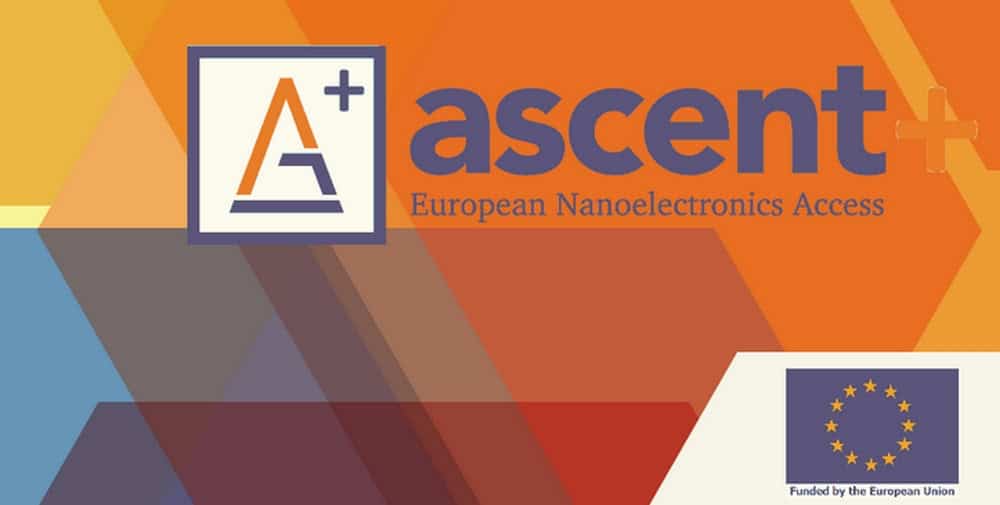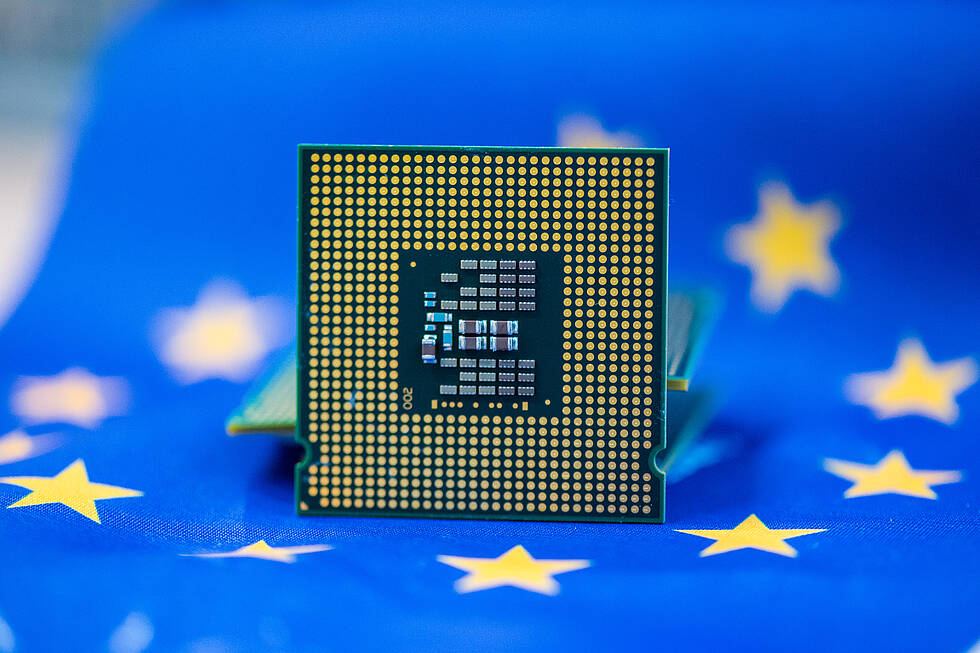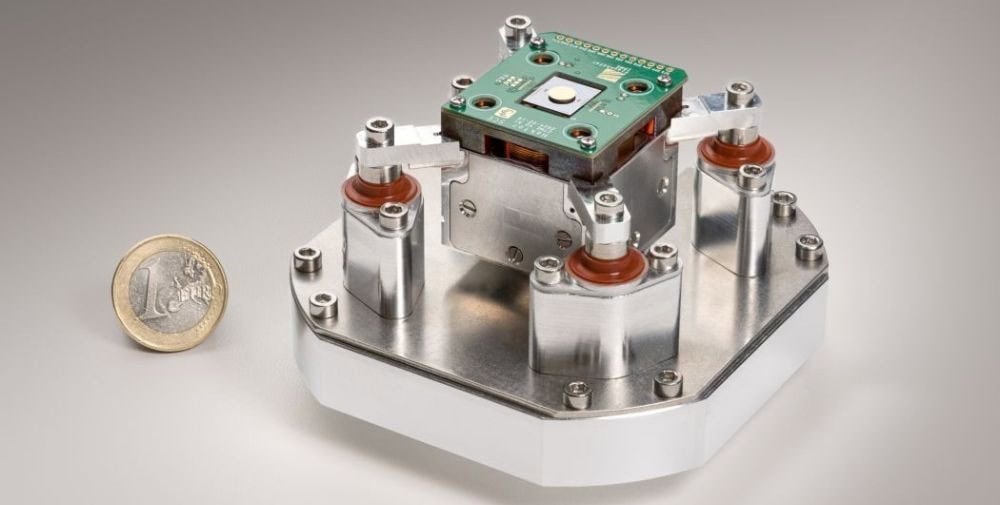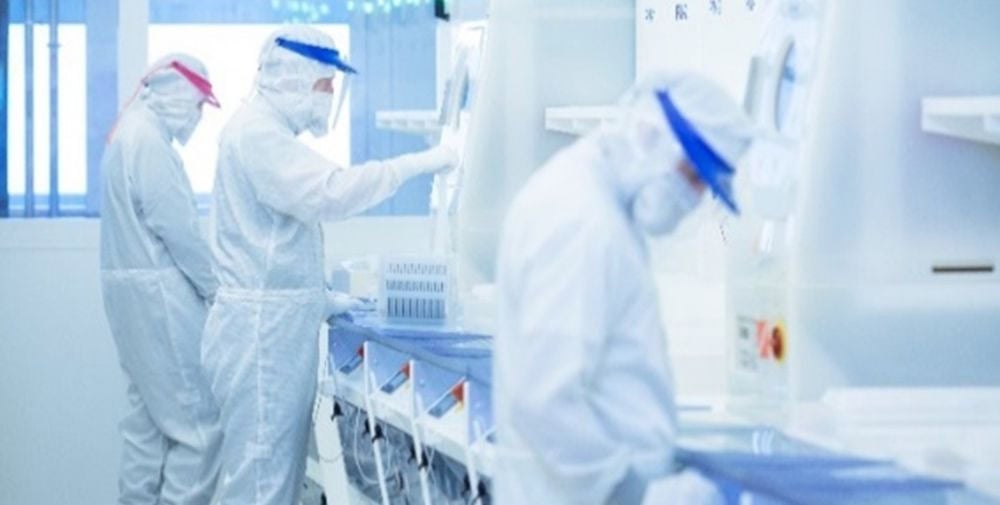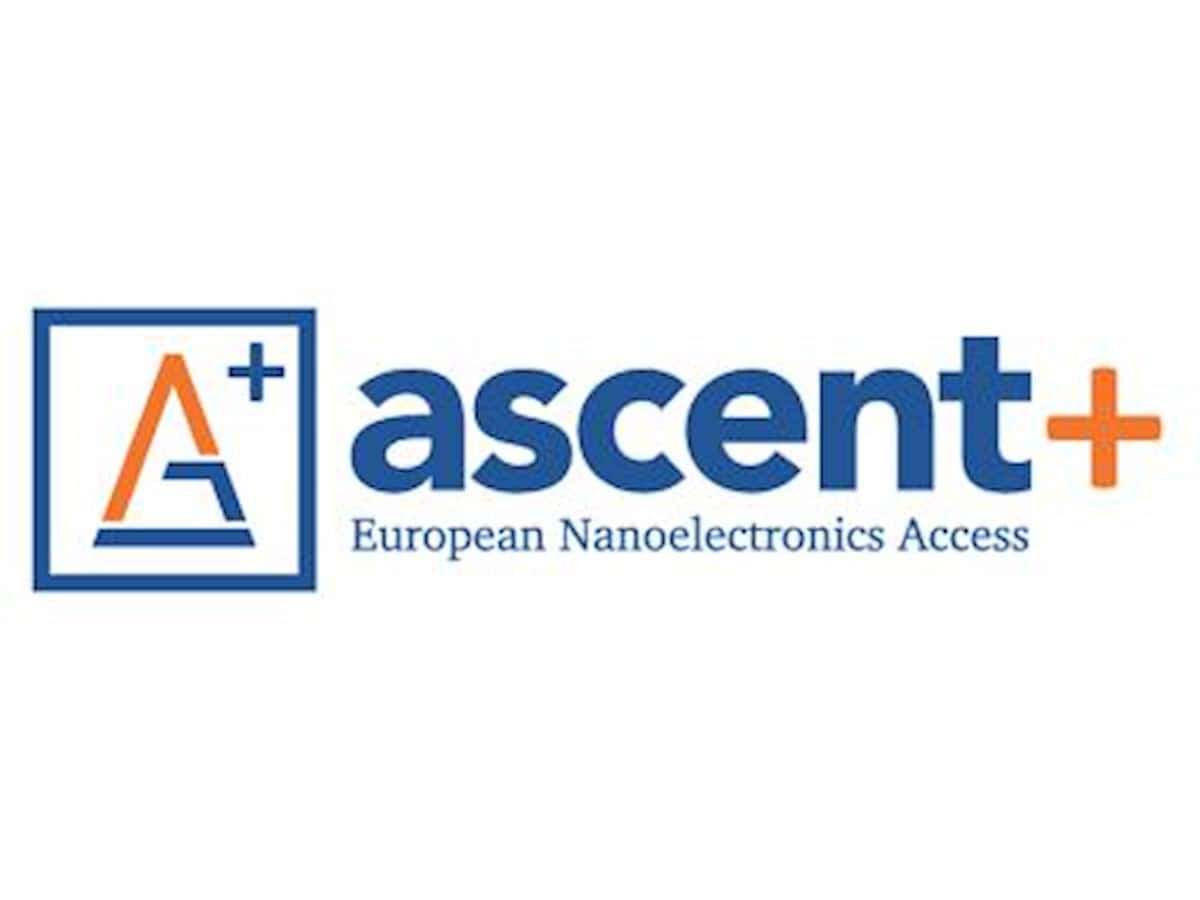
Building on the success of the first ASCENT four-year program, ASCENT+ has achieved significant impact in the field of semiconductor and nanotechnologies over the last four and a half years. The program was designed to create a European platform for the provision of infrastructure and expertise from 14 partners and has succeeded in building a strong community of 3,000 members committed to the project. As part of the Transnational Access (TA) program, ASCENT+ provided an integrated single point of access to an access portfolio of more than 70 offerings (including the use of some 140 tools) to enable innovation by researchers from academia and industry from Europe and beyond. Access for users was granted free of charge through a competitive process. Out of 300 requests, the program was a stepping stone for over 550 researchers, including 65 PhD students and 32 Master’s students. In addition, 20% of access projects were made available to industry, with the majority being SMEs.
In addition to direct support for access, ASCENT+ introduced the Research Accelerator Program, which allowed selected participants to visit the Access Providers and participate in training sessions. These sessions focused on practical laboratory techniques and allowed participants to delve deeper into specific research topics, enhancing their practical skills and knowledge. It provided an opportunity to learn how key European research infrastructures operate and was a real asset for further collaboration.
As a direct result of the research work, 60 scientific publications have been produced to date, including 14 that have resulted directly from TA projects and 40 from joint research activities (JRAs), demonstrating the success of the collaboration. It has also led to the development of several proof-of-concept technologies, which have now been further developed to increase their technology readiness level. In addition, joint research activities have been carried out to advance the state of the art in capabilities and technology platforms and to improve the TA services offered by the access providers. These joint research activities have facilitated the exchange of world-class expertise between leading academic researchers and the access providers.
Over 100 dedicated individuals have been mobilized in the “access providers”, “knowledge hubs” and “community networks” to implement and support the project throughout its duration. Providing access and mobilizing resources was not only a means to support researchers, but also provided a unique opportunity to bring European stakeholders in the field of micro- and nanoelectronics closer together. ASCENT+ effectively connected universities, research institutes and companies and provided them with a platform for exchange and collaboration. Remarkably, 62% of the completed transnational access projects led to further collaborative efforts, underlining the success of the project in fostering lasting partnerships.
ASCENT+ is coming to an end, but its success and impact have justified further investment in other EU initiatives to further accelerate European innovation in line with the objective of the EU Chip Act.
Tyndall National Institute, ASCENT+ Project Coordinator.
Tyndall is a leading European research center for integrated ICT materials, devices, circuits and systems and a University College Cork research flagship. Tyndall is Ireland’s largest Research and Technology Organization (RTO) specializing in electronics and photonics.
Tyndall works with industry and academia to translate research into products in its core market areas of electronics, communications, energy, health, agri-food and environment. With a network of over 200 industry partners and customers worldwide, Tyndall is focused on delivering human and economic impact through excellence in research. Tyndall is home to a multidisciplinary research community of over 600 people from 52 nations, including over 160 postgraduate students.
Visit the website: https://www.tyndall.ie/
Imec is a world-leading research and innovation center for nanoelectronics and digital technologies. Imec leverages its state-of-the-art R&E infrastructure and its team of more than 5,000 employees and top researchers for R&E in advanced semiconductor and system scaling, silicon photonics, artificial intelligence, 5G communications and sensor technologies, as well as in application areas such as health and life sciences, mobility, Industry 4.0, agri-food, smart cities, sustainable energy, education, etc.
Imec brings together global leaders in the semiconductor value chain, Flanders-based and international technology, pharma, medical and ICT companies, start-ups and academic and knowledge centers. Imec is headquartered in Leuven (Belgium) and has research locations throughout Belgium, the Netherlands and the US, as well as offices in China, India, Taiwan and Japan. Further information about imec can be found at www.imec-int.com. Imec is a registered trademark for the activities of imec International (IMEC International, a legal entity under Belgian law as “Stichting van Openbaar Nut”), imec Belgium (IMEC vzw, supported by the Flemish government), imec Netherlands (Stichting IMEC Nederland), imec Taiwan (IMEC Taiwan Co.), imec China (IMEC Microelectronics (Shanghai) Co. Ltd.), imec India (IMEC India Private Limited), imec San Francisco (IMEC Inc.) and imec Florida (IMEC USA Nanoelectronics Design Center Inc.).
Visit the website: https://www.imec-int.com/en
CEA-Leti, a technology research institute of CEA, is a global leader in miniaturization technologies that enable smart, energy-efficient and safe solutions for industry. Founded in 1967, CEA-Leti is a pioneer in micro- and nanotechnology, developing customized, differentiating application solutions for global enterprises, SMEs and start-ups. CEA-Leti addresses critical challenges in the fields of healthcare, energy and digital migration. From sensors to data processing and computing solutions, CEA-Leti’s multidisciplinary teams deliver deep expertise and leverage world-class pre-industrialization facilities.
With more than 1,900 employees, a portfolio of 3,100 patents, 11,000 square meters of clean room space and a clear IP policy, the institute is based in Grenoble, France, and has offices in Silicon Valley and Tokyo. CEA-Leti has created 70 start-ups and is a member of the Carnot Institutes network. Follow us on www.leti-cea.com and @CEA_Leti. Technological expertise: The CEA plays a key role in the transfer of scientific knowledge and innovation from research to industry. This high-level technological research is carried out in particular in electronic and integrated systems from the micro to the nano scale. It has a wide range of industrial applications in the fields of transport, health, security and telecommunications and contributes to the creation of high-quality and competitive products.
Visit the website: www.cea.fr/english
The Fraunhofer-Gesellschaft, based in Germany, is a world-leading organization for applied research. It plays an important role in the innovation process by prioritizing important future-relevant technologies and commercializing their results in business and industry. As a pioneer and trendsetter for innovative developments and excellent research, it helps shape our society and our future.
The Fraunhofer-Gesellschaft was founded in 1949 and currently operates 76 institutes and research facilities throughout Germany. The two Fraunhofer Institutes involved in ICOS, EMFT and IISB, are part of the “Research Fab Microelectronics Germany”, FMD. As a one-stop store, the FMD combines the scientifically excellent technologies, applications and system solutions of the cooperating institutes to create a comprehensive offering in the field of micro- and nanoelectronics. The Fraunhofer Institute for Integrated Systems and Device Technology IISB conducts applied research and development in the fields of micro- and nanoelectronics, power electronics and mechatronics. The Fraunhofer Institute for Microsystems and Solid State Technologies EMFT is one of the world’s leading providers of microsystem technologies, in particular interconnection technologies for 3D-integrated heterogeneous microelectronic systems, including quantum computers (EMFT is a key partner in Munich Quantum Valley).
Visit the website: https://www.fraunhofer.de/en.html
The International Iberian Nanotechnology Laboratory (INL) in Braga, Portugal, houses a micro- and nanofabrication facility that is the largest in Portugal for research purposes and includes some of the most advanced instrumentation in the Iberian Peninsula. The heart of the manufacturing facility is located in a 1200 m² clean room: class 100 in the lithography bays and class 1000 in the other areas.
The unique combination of tools and expertise for the deposition, patterning and etching of a wide range of materials enables extensive in-house capabilities for the fabrication of electronic, magnetic, optical or MEMS devices, as well as various “hybrid” combinations, e.g. MEMS structures functionalized with magnetic sensors or optomechanical MEMS devices. All these manufacturing processes are carried out on a 200 mm wafer scale. Other heterogeneous integration capabilities include structures that combine bottom-up and top-down methods for the (self-)organization and structuring of nanomaterials and nanostructures. These fabrication capabilities are supported by in-house expertise in process design and integration as well as a comprehensive suite of nanocharacterization instrumentation and expertise, with the electron microscopy and spectroscopy facility with seven instruments (including SEM, TEM/STEM, DualBeam FIB-SEM or XPS) playing a key role.
Visit the website: https://inl.int/
The SINANO Institute is the European Academic and Scientific Association for Nanoelectronics, a network of excellence connecting the European research and academic community in the field of semiconductor science and technology, bringing together 27 members and 21 deep-tech start-ups from 16 European countries in the field of emerging nanoelectronic materials, devices, circuits and systems.
The SiNANO Institute also organizes international workshops/conferences to develop a high level of expertise in Europe and to drive the definition of roadmaps. In this context, SiNANO is the European representative of IRDS “International Roadmap for Devices and Systems”.
SiNANO plays an important role in structuring EU programs and promoting synergies in the European ecosystem. In collaboration with research institutes and industry, SiNANO strengthens the overall innovation efficiency of European research in the field of nanoelectronics.
Visit the website: https://www.sinano.eu/
MIDAS is an industry-led cluster made up of representatives from industry, educational institutions, research institutes and government agencies working together to develop the ‘micro- and nanoelectronics-based systems’ sector in Ireland. Established in 1999, MIDAS aims to represent the entire value chain as the industry evolves to provide combined electronic and software system solutions.
MIDAS is a member of Silicon Europe, an association of Europe’s leading micro- and nanoelectronics clusters. MIDAS is the key enabler of the networking opportunities developing in our industry, enhancing the education of graduates and professional engineers to make it one of the best industries in which to work.
Visit the website: https://www.midasireland.ie/
Founded in 2005, the Innovation Cluster Minalogic Auvergne-Rhône-Alpes is the driving force behind the digital transformation and serves the strategic challenges of reindustrialization, national sovereignty and sustainable development. With offices in Grenoble, Lyon, Saint-Etienne and Valence, Minalogic operates an ecosystem of nearly 500 members, including more than 420 innovative companies from across the region, covering the entire digital technology value chain. Minalogic’s members also include 20 research and training institutions (with more than 150 laboratories), local authorities, banks and investors, forming a unique network for innovation in digital technologies.
Minalogic supports all its stakeholders in forging business relationships through targeted, qualified contacts and creating opportunities for innovation and growth at national, European and international level. Minalogic draws on the recognized expertise of its team and its services are based on three complementary missions: – Revitalizing a regional innovation network on an international scale, – – Supporting innovation projects and enhancing the technological expertise of its ecosystem. Since 2005, the cluster has certified 885 projects and helped secure financing totaling 1.14 billion euros in government funding and R&D investments totaling more than 2.7 billion euros. With a network of over 20,000 active contacts, the cluster has initiated nearly 3,000 targeted contacts and 12,600 B2B meetings since its inception.
Visit the website: https://www.minalogic.com
With more than 600 members, Silicon Saxony is the largest high-tech network in Saxony and one of the largest microelectronics and IT clusters in Germany and Europe. Since its foundation in 2000, Silicon Saxony has been a self-financed association that connects manufacturers, suppliers, service providers, universities, research institutes, public institutions and industry-relevant start-ups in Saxony and beyond.
The cluster focuses on technological trends of the present and future – e.g. artificial intelligence, robotics, automation, the Internet of Things, sensors, energy efficiency as well as neuromorphic and edge computing. As a top-class information, communication and cooperation platform, the association promotes the regional, national and international networking of its members by participating in and organizing industry events. In addition, Silicon Saxony is one of the founding partners of Silicon Europe – an association of twelve European clusters for advanced electronics and software technologies. Since 2012, the network has held the GOLD label for excellent cluster management from the European Cluster Excellence Initiative (ECEI).
Visit the website: https://silicon-saxony.de/en/
With around 18,000 students and over 2,500 faculty and staff members, the Johannes Kepler University Linz (JKU) is one of the most important universities in Austria. The JKU’s Department of Semiconductor Physics, headed by Prof. Armando Rastelli (the JKU PI within ASCENT+), has 5 permanent employees, 5 engineers/technicians and about 30 postdocs/doctoral students.
The group has a long-standing tradition in the field of epitaxial growth and structural and optical characterization of semiconductor quantum dots and operates a modern clean room equipped with instruments for epitaxial growth, lithography, metal and dielectric deposition, etching and bonding. Particularly relevant to this project is the experience in the development of voltage controllable sources of quantum light for applications in emerging quantum technologies.
Visit the website: www.jku.at/en
Ghent University Ghent University is one of the top 100 universities and one of the largest universities in Belgium. It was founded in 1817. Ghent University aims to be a creative community of staff, students and alumni united by the university’s values: Engagement, Openness and Pluralism. Our motto is “Dare to Think”: We encourage students and staff to take a critical approach. Our 11 faculties offer more than 200 courses and conduct in-depth research in a wide range of academic fields.
Ghent University has around 9,000 staff and over 45,000 students, of whom around 12% come from abroad. Ghent University also has a Global Campus in Songdo, South Korea, as an important Asian center for the bioindustry and life sciences. Ghent University conducts very intensive research activities, including 66 ERC projects (June 2019), over 3,000 publications per year, 618 patents and 69 spin-offs in the last ten years, and 22 business development centers that enable intensive collaboration with industry.
Visit the website: https://www.ugent.be/en
The Centre for Radiofrequencies, Optics and Micro-nanoelectronics in the Alps (formerly IMEP-LaHC) is a “Unité Mixte de Recherche UMR 5130” (CNRS/Grenoble INP/UGA/Université Savoie Mont Blanc) with 110 employees strongly involved in research activities related to micro- and nanoelectronics, microphotonics, micro- and nanosystems, microwaves and microwave photonics.
The laboratory is spread over two sites: Grenoble-Minatec (38) and Le Bourget du Lac (73), which are about 70 km apart. CROMA’s research activities cover broad areas (materials, technologies, components, circuits and systems) allowing multidisciplinary research in collaboration with our partners in nanophysics, materials chemistry, circuit designers or system manufacturers in electronics and optoelectronics. These activities are grouped into three research themes with potential applications (semiconductors, computing, telecommunications) that represent important targets for the economy in the coming decades.
Visit the website: https://croma.grenoble-inp.fr/
As a resource university, TU Bergakademie Freiberg focuses its research and teaching on the responsible use of the earth’s finite resources. To this end, the six faculties develop efficient and alternative technologies for raw material extraction, energy technologies, materials and recycling processes and make a significant contribution to solving economic and ecological challenges. With engineering, natural sciences, geosciences, materials science and economics, the university combines all areas of modern raw materials research in basic research and application-oriented research.
Around 4,000 students receive a scientifically sound and practice-oriented education in 72 degree programs. The TU Bergakademie Freiberg has a long tradition in semiconductor materials research. In cooperation with local and international industrial partners and research institutes, the Institute of Applied Physics at TU Bergakademie Freiberg accompanies the development process from the synthesis and characterization of the semiconductor material to nanoelectronic devices.
Visit the website: https://tu-freiberg.de/en
Founded in 1222, Padua’s Studium Patavinum was an educational institution that welcomed Italian students and scholars as well as students and scholars from various European countries seeking cultural freedom and expression. The University of Padua can boast impressive numbers. With over 70,000 students (including over 7,000 international students) and 2,200 teaching staff in 32 faculties and 8 schools, the University also employs over 2,400 technical administrators.
Each year, more than 13,000 graduates are accredited, 5,000 scholarships are awarded and over 2 million books are made available in the University’s 29 libraries. The University continues to expand its excellence in education by offering a variety of degree programs. These include over 100 undergraduate and postgraduate degree programs, 10 single degree programs, nearly 100 master’s degree programs, more than 20 postgraduate programs and over 10 specialized training programs. The university comprises over 60 schools of specialization and 40 doctoral schools. Within the university, the centuries-old tradition that began with Copernicus and Galileo continues today at the Institute of Physics and Astronomy “G. Galilei”, one of the most important research centers for physics and astronomy in Italy, involved in research projects at the highest international level in many areas of fundamental and applied physics, including nuclear and particle physics, astronomy and astrophysics and matter physics, with state-of-the-art infrastructure and an important role or access to major international laboratories, as well as an excellent track record in semiconductor physics for micro/nanoelectronics and photonics.
Visit the website: www.unipd.it/en
– – – – –
Further links
👉 www.ascent.network
Photo: ASCENT+
